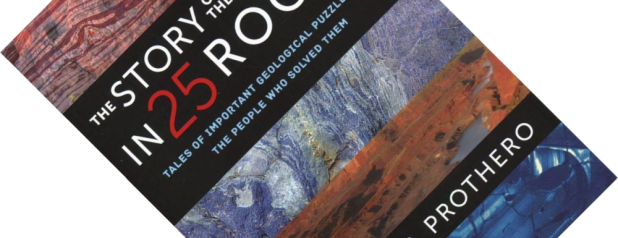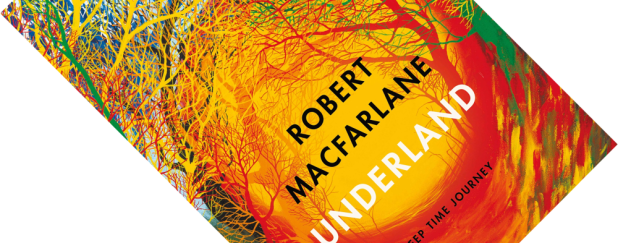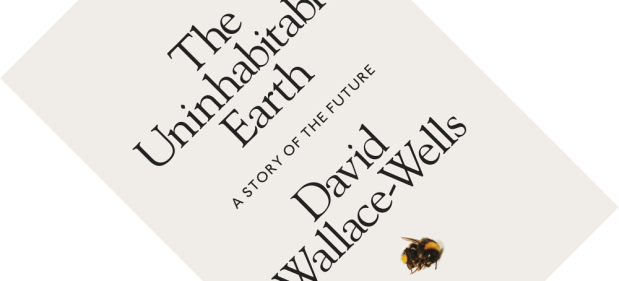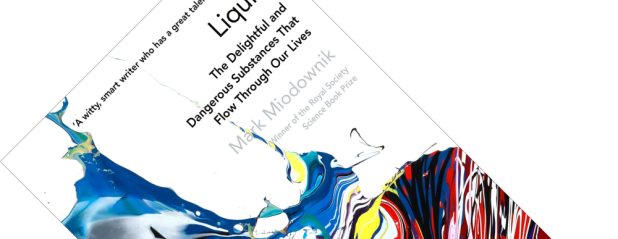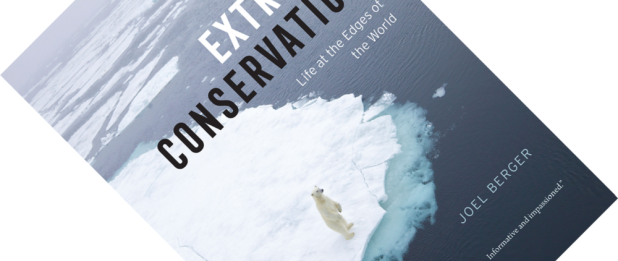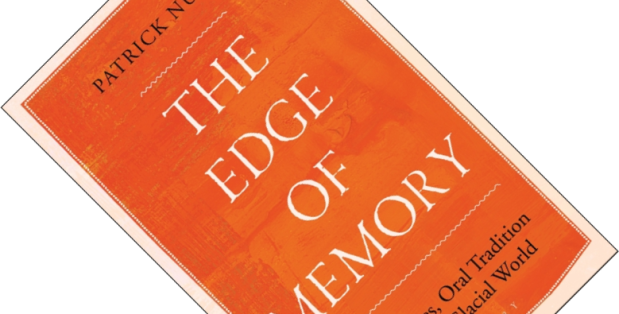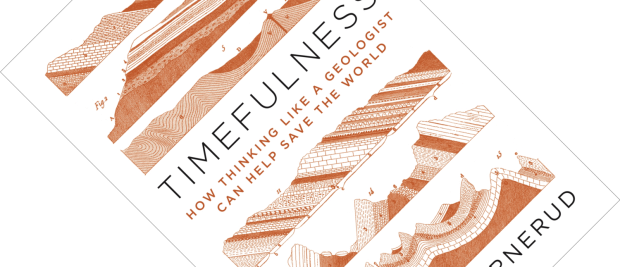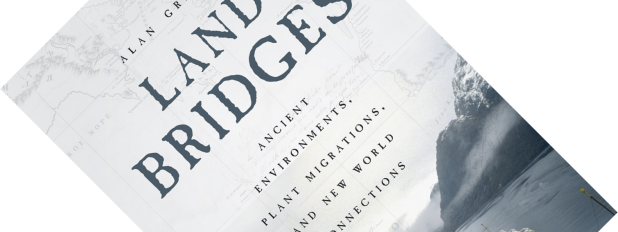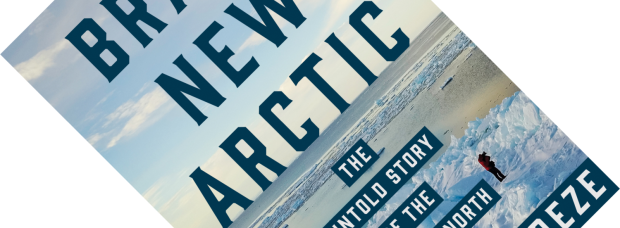Judging by the title of this book, you might expect it to talk of 25 remarkable kinds of rocks and minerals. But in the preface, geologist and palaeontologist Donald R. Prothero makes clear that his book looks as much at famous outcrops and geological phenomena. Bringing together 25 readable and short chapters, he gives a wide-ranging tour through the history of geology, celebrating the many researchers who contributed to this discipline.
glaciers
Book review – Underland: A Deep Time Journey
Shelter. Yield. Dispose.
These three tasks, so says nature writer Robert Macfarlane, signify our relationship with the world beneath our feet, both across time and across cultures. Underland is his lyrical exploration of underground spaces where people have sought shelter from warfare or hidden valuable treasures, are extracting minerals in mines or knowledge in research facilities, or are looking to dispose of waste. It is one of two big books published only five months apart on the subterranean realm, the other being Will Hunt’s Underground: A Human History of the Worlds Beneath Our Feet which I will be reviewing next. But first, Underland.
Book review – The Uninhabitable Earth: A Story of the Future
“It is worse, much worse, thank you think”. With these ominous words, David Wallace-Wells, deputy editor at New York magazine, starts his no-holds-barred story of climate catastrophe. Pulling together worst-case scenario predictions, he is hell-bent on scaring the living daylight out of his readers by sketching the manifold crises that loom in our near future if we let climate change develop unchecked. He proves a poetic agitator and I admire his outspokenness – I don’t think he is alarmist, but simply saying what many scientist are silently thinking. Whether this divisive approach is helpful is another question, and one for which he has been criticised. It is a price Wallace-Wells is willing to pay, because he thinks most people are not scared enough.
Book review – Liquid: The Delightful and Dangerous Substances That Flow Through Our Lives
“A series of glasses with transparent liquids is in front of you, but which will quench your thirst and which will kill you?” Thus asks the dust jacket of Liquid of the reader. In this imagined game of liquid Russian roulette, one glass will get you drunk (vodka), the other kills you (kerosene), while a third will bring you no harm (water). But why? In Liquid, materials scientist Mark Miodownik takes an amusing romp through the chemistry and physics of the liquids of our everyday life.
Book review – Essentials of Geology (13th Edition)
Like so many teenagers, I wanted to become a palaeontologist. However, there was no degree programme in palaeontology in the Netherlands back then (I doubt there is one nowadays), so I was advised that one option to prepare myself was to do a Master’s in biology or geology. I choose the former and never looked back, but remained fascinated with the latter. Now, twenty years later, my job exposes me to many geology textbooks and especially Cambridge University Press has a wonderful output of advanced-level books that I really want to read. But when I reviewed Earth History and Palaeogeography some time ago, I realised I was out of my depth and struggled with the jargon. Is it ever too late to start over and make an entry into a new field? I decided to shell out and invest in a textbook to find out.
Book review – Extreme Conservation: Life at the Edges of the World
Wildlife conservation and field biology are not for the faint of heart. Studying wild animals in their natural habitat brings with it long periods away from home, lack of comfort, and many logistical challenges. It calls for a certain kind of grit. But equally, it requires a persistent mindset to fight the cause of wildlife when conservation clashes with company’s bottom lines, political aspirations, and the wants and needs of an expanding world population. Even amongst this hardened bunch, few people would voluntarily venture into icy wastelands to study the animals existing at the edge of the world. Joel Berger is one of them and Extreme Conservation is his story, equal parts adventure narrative as it is a meditation on the value of wild nature.
Book review – The Edge of Memory: Ancient Stories, Oral Tradition and the Post-Glacial World
When I read the brief for The Edge of Memory, my first thought was: “Really, Bloomsbury is publishing a book on flood geology?” This creationist take on geology tries to interpret geological features in accordance with the Biblical account of a worldwide flood described in Genesis. If you haven’t read your Bible verses today, don’t worry, if I say “Noah” and “ark”, you probably know which one I mean. My guess was close, but not quite on the ball. Patrick Nunn, a professor of Oceanic Geoscience, here argues that ancient stories and myths hold within them descriptions of geological catastrophes and climatic changes. Welcome to the obscure academic discipline of geomythology.
Book review – Timefulness: How Thinking Like a Geologist Can Help Save the World
At first blush, you might think this book is part of the ongoing craze of spiritual mindfulness books. But let me refrain from snarky comments. Geologist Marcia Bjornerud does indeed want to instil a sense of mindfulness about deep time, but one that is, pardon the pun, grounded in geology. In her opinion, most of us lack an awareness of durations of important chapters in our planet’s history and of rates of change of many natural processes. As a consequence, we fail to see just how rapidly we are altering our planet. In one of the first paragraphs she eloquently writes:
“Like inexperienced but overconfident drivers, we accelerate into landscapes and ecosystems with no sense of their long-established traffic patterns, and then react with surprise and indignation when we face the penalties for ignoring natural laws”.
And with that, she had me hooked.
Book review – Land Bridges: Ancient Environments, Plant Migrations, and New World Connections
Before plate tectonics became an accepted idea in geology, Lyell’s doctrine of uniformitarianism still ruled supreme (see my review of Cataclysms: A New Geology for the Twenty-First Century for a short introduction). A corollary was that the continents supposedly had always been where they are now. One observation scholars had to explain away was that the same fossils occur on both sides of the various oceans. Looking at maps, some people noticed the thin strip of land connecting North and South America and concluded that land bridges must have formed and sunk beneath the waves at just the right times in history to enable migrations (see Four Revolutions in the Earth Sciences: From Heresy to Truth for more details). As explained in The Tectonic Plates are Moving!, we know better nowadays. Nevertheless, the concept of land bridges is still alive and well today, and palaeobotanist Alan Graham here introduces five of them, exploring their effects on biogeography, climate, and human history.
Book review – Brave New Arctic: The Untold Story of the Melting North
You might think that with the constant presence of the subject of climate change in news stories there isn’t much left to tell. But just because a certain sense of climate-change-fatigue might have set in (which is worrying in itself), climate change has not stopped. In Brave New Arctic, geography professor Mark C. Serreze gives an eye-witness account of how the Arctic is rapidly changing, based on his more than 35 years of personal involvement. And as he shows, there certainly are stories left to tell.

